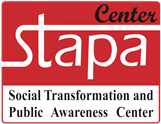In recent years, a number of countries especially Indonesia have begun to address a phenomenon known as “ecological injustice” or “environmental racism”. These terms represent the observation that members of ethnic minorities, women communities of lower socio-economic status and the least educated disproportionately: 1) suffer from exposure to environmental hazards due to their proximity to hazardous waste sites, incinerators, factories, and other sources of pollution, and/or 2) are denied environmental benefits such as water, sewage treatment facilities, sanitation, and access to natural resources. The program focus for taking action to address the common root of social injustice economic domination and environmental destruction. The program also to advance and support the struggle for liberation from global inequality, injustice and ecological destruction and create opportunities for dialogue and spaces for transformation toward a socially, ecologically and economically just world. STAPA believes that the compartmentalization of issues is enabling corporations and conservative forces to keep movements for change divided and powerless.
STAPA strives to identify and address the common roots to the issues of social injustice, ecological destruction and economic domination as a means to achieve a fundamental transformation toward a society based on egalitarian ideals and grounded in ecology. We aim to support local grass root groups and provide an critical voice at the levels of local, regional and national governments, and companies. STAPA committed to promoting and supporting this theme. Ecological Justice is the fair treatment and meaningful involvement of all people regardless of race, color, national origin, or income with respect to the development and implementation. We also serve as a networking conduit to support key environmental justice organisations nationally. We work collaboratively with the environmental justice movement to strengthen its capacity to use information as a strategic tool to effectively confront and dismantle the perpetrators of environmental racism and injustice. We only work with local grass root organization to hold government and corporate to about their ecological practical abuse. STAPA main action focused specifically on issue areas of ; global warming and climate change, mining and gas, fuel, oil, water and privatisation, illegal logging and certification, women and forestry. Every year we active conducting train to young new environment activist for training of trainers for issues ; dynamic ecological models, indicators of sustainable development, integrated assessment models (IAMs) and water for women. We view the institutions, promoters and beneficiaries of the neo-liberal model of economic globalisation as accelerating the decomposition of both community and ecology throughout the world. Therefore, STAPA considers movements for social and ecological justice as inseparable and their unification necessary to build effective analysis, resistance and alternatives to economic globalization. We view our programs as an essential component of building understanding and unity between shared struggles for social and ecological justice. We both believe and participate in a collective decision making process for an essential transformation towards an ecologically, socially and economically just world. We reject top-down decision making and promote bottom-up non-discriminatory interconnection and dialogue between local, regional and global grassroots social movements of course gender and ecological is the our main urgent.

